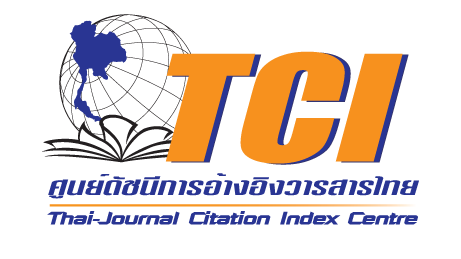EFFECT OF MODERATE SLEEP LOSS AND OVERREACHING UPON REACTION TIME, MUSCULAR AND CARDIORESPIRATORY FITNESS
Keywords:
Moderate sleep loss, Overreaching, Reaction time, Muscular fitness, Cardiorespiratory fitnessAbstract
The objectives of this research were to study and compare effects of moderate sleep loss and overreaching upon reaction time, muscular strength, power, endurance and cardiorespiratory fitness. The subjects were 40 male intermittent sport athletes at Sport Science Faculty of Kasetsart University, aged between 19-22 years old. They were divided equally into four groups by simple random sampling. Group 1 was under normal sleep and normal training; Group 2 was under normal sleep and overreaching; Group 3 was under moderate sleep loss and normal training, and Group 4 was under moderate sleep loss and overreaching. The subjects were controlled and monitored for a three week period which was divided into two distinct phases. In the first phase, subjects completed two weeks of normal sleep and normal training. In the second phase, in moderate sleep loss group, each subject reduced their sleep by 2 hours for one week. In overreaching group, this phase consisted of an increase in training volume and intensity for one week. All groups were tested for reaction time, muscular strength, power, endurance and maximal oxygen consumption between before (Pre-test) and after (Post-test) Phase 2. Data were statistically analyzed using mean, standard deviation, Pair t-test, One-way Multivariate Analysis of Variance (MANOVA) and multiple comparison (Tukey’s) method. Statistical significance was set at p < 0.05.
Results showed that in Group 3, mean of reaction time and muscular strength between pre-test and post-test (864.71 ± 61.41 ms. vs. 936.19 ± 61.79 ms.; 194.51 ± 31.75 N.m vs. 174.24 ± 35.13 N.m) were significantly different. In group 4, mean of reaction time, muscular strength and endurance between pre-test and post-test (870.27 ± 46.21 ms. vs. 940.49 ± 65.20 ms.; 184.42 ± 28.36 N.m vs. 161.68 ± 24.66 N.m; 3026.16 ± 477.37 N.m vs. 2604.28 ± 569.41 N.m) were significantly difference. When compare the mean of percent change between pre-test and post-test of reaction time, muscular strength, power and endurance and maximal oxygen consumption, it showed that mean of percent change between pre-test and post-test of reaction time and muscular strength of Group 1 was significantly different from Group 3 and 4 (-1.18 ± 3.33 ms. vs. 8.39 ± 6.99 ms., 8.11 ± 5.68 ms.; 4.23 ± 7.01 N.m vs. -10.47 ± 8.64 N.m, -12.06 ± 8.18 N.m). Mean of percent change between pre-test and post-test of muscular endurance of Group 1was significantly different from Group 4 (2.43 ± 9.94 N.m vs. -14.05 ± 11.62 N.m). The results from the study suggest that moderate sleep loss and overreaching are negative factors affecting neuromuscular fitness that cause a decrease in physical fitness.
(J. Sports Sci. Technol 2011; 11 (2): 48–62)






